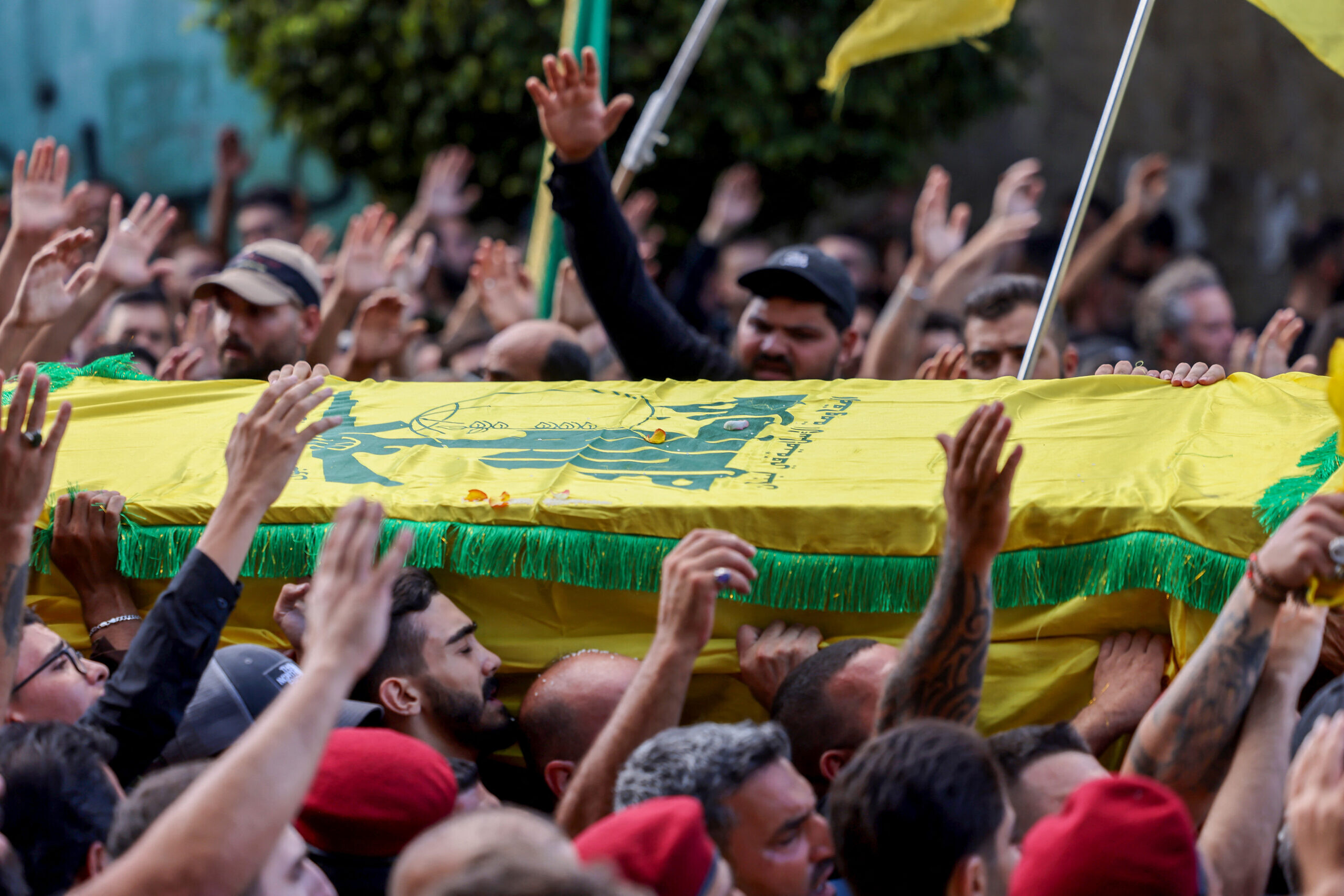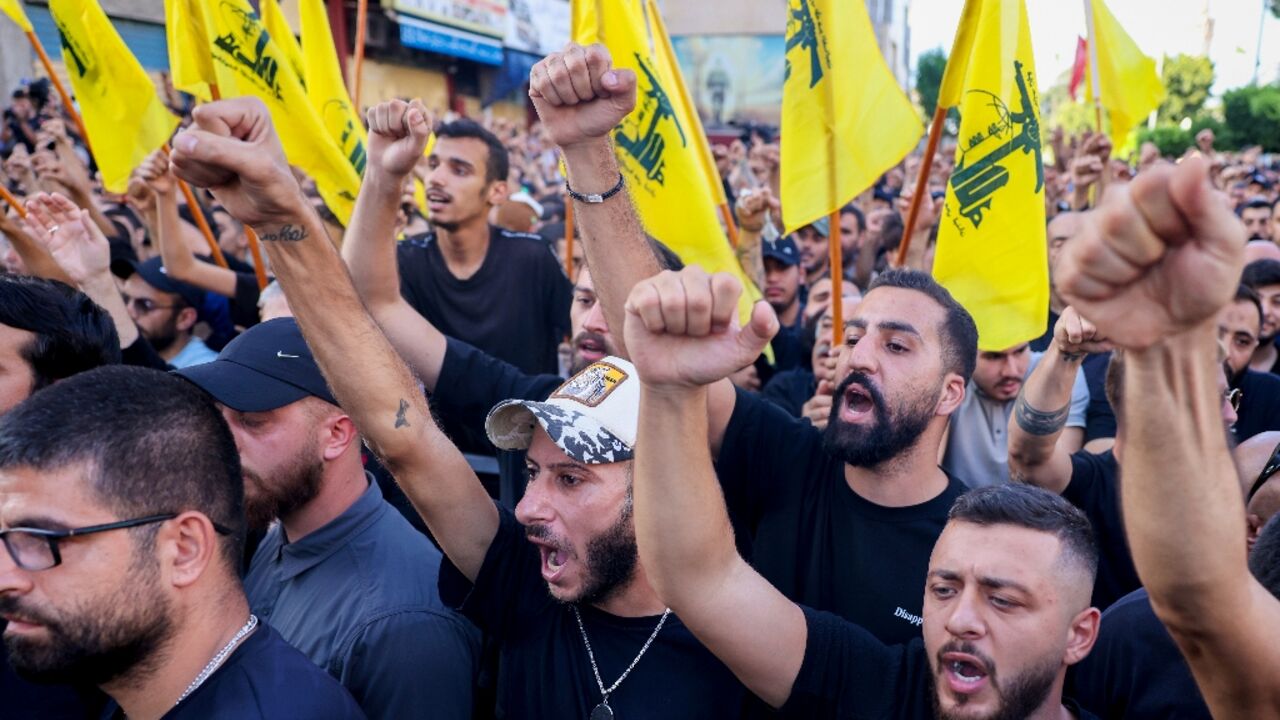As the conflict between Israel and Hezbollah escalates, the world watches with bated breath, concerned about the devastating potential for an all-out war between two of the most powerful forces in the Middle East. What started as a series of cross-border skirmishes has rapidly grown into a serious security threat, not only for the region but for global stability. International powers, including the United Nations (UN), the United States, and the European Union (EU), have called for an immediate de-escalation, warning that further military engagements between Israel and Hezbollah could lead to a catastrophic humanitarian crisis and broader geopolitical instability.

Cross-Border Attacks Intensify
The present-day situation took a dramatic turn in early October 2023. The Israeli Defense Forces (IDF) reported on Sunday that over 150 rockets and other projectiles had been launched from southern Lebanon into northern Israel. Several of these projectiles reached deeper into Israel than previous attacks, sending residents in the city of Haifa and surrounding areas into bomb shelters. This marks a significant escalation in Hezbollah’s capabilities and reach. Meanwhile, Israel responded with a wave of airstrikes, reportedly targeting Hezbollah’s rocket launchers and military positions in southern Lebanon, as well as command structures in Beirut.
In parallel to the rocket and airstrikes, the war of words between Israeli and Hezbollah leaders has also intensified. Israeli Prime Minister Benjamin Netanyahu declared that Israel would take “whatever action is necessary to restore security” and ensure the safety of residents along the border. Netanyahu warned that Israel had already dealt a series of powerful blows to Hezbollah, claiming that the group had “never imagined” the extent of Israel’s response. Nevertheless, Hezbollah’s leadership remained defiant, with deputy leader Naim Qassem vowing that threats would not deter them. At the funeral of high-ranking Hezbollah commander Ibrahim Aqil, who was killed in an Israeli strike on Beirut, Qassem proclaimed that Hezbollah had entered a new phase of “open reckoning” with Israel.
This tit-for-tat escalation shows no sign of abating. Hezbollah’s military capabilities, including its vast arsenal of rockets and missiles, pose a formidable threat to northern Israel. The IDF, with its superior airpower and advanced missile defense systems such as the Iron Dome, has been able to intercept many of the projectiles launched by Hezbollah, but the increased range of these rockets represents a serious threat to Israeli civilian infrastructure. As international leaders call for restraint, the question remains: can the region pull back from the brink of war, or is a broader conflict inevitable?
To understand the broader implications of the current conflict, it is crucial to understand Hezbollah’s dual role within Lebanon as both a political force and a militant organization. Established in the 1980s with Iranian support, Hezbollah has grown into the most powerful military actor in Lebanon, surpassing even the Lebanese Armed Forces in terms of firepower and organizational capacity. Hezbollah also wields considerable political influence, holding significant sway in the Lebanese parliament and playing a central role in the country’s governance.

Hezbollah’s military strategy is shaped by its long-standing alliance with Iran, which views the group as a key proxy in its broader regional struggle against Israel and the United States. Over the years, Hezbollah has amassed a substantial arsenal, including tens of thousands of rockets and missiles, many of which are capable of striking deep into Israeli territory. Iran has reportedly supplied Hezbollah with increasingly sophisticated weapons systems, including precision-guided missiles and drones, further enhancing the group’s capabilities. In recent years, Hezbollah has also developed a strong presence in Syria, where it has fought alongside Iranian and Syrian government forces in the country’s civil war.
Despite Hezbollah’s powerful military presence, Lebanon is in a precarious state. The country is still reeling from a crippling economic crisis, widespread political corruption, and the aftermath of the devastating Beirut port explosion in 2020. Lebanese civilians, already suffering from economic deprivation and political paralysis, are now facing the very real possibility of becoming collateral damage in a new conflict between Hezbollah and Israel. In this context, Hezbollah’s decision to escalate military action against Israel carries significant risks, both for the group and for Lebanon as a whole.
Israel, meanwhile, has long viewed Hezbollah as one of its most serious security threats. The Israeli Defense Forces (IDF) have consistently monitored Hezbollah’s military activities in southern Lebanon, and Israel has launched preemptive strikes on Hezbollah positions in Syria and Lebanon on several occasions over the past decade. The IDF’s military doctrine when dealing with Hezbollah is shaped by the need to neutralize the group’s rocket and missile capabilities while minimizing civilian casualties and avoiding full-scale ground operations in Lebanon—a challenging balance to strike.
In recent weeks, the IDF has carried out a series of precision strikes on Hezbollah’s military infrastructure, including rocket launchers and command centers. However, Hezbollah’s use of densely populated areas to store and launch its missiles complicates Israel’s military operations, as civilian casualties are almost inevitable. The IDF claims that its operations are designed to protect Israeli civilians from Hezbollah’s rocket attacks, but the high death toll in Lebanon, including the recent killing of 45 people in an Israeli airstrike on Beirut, has drawn widespread international condemnation.

Israeli officials have made it clear that their primary objective is to restore security along the Israel-Lebanon border and to prevent Hezbollah from acquiring advanced weapons systems. However, given the complexity of the conflict, achieving these objectives without triggering a wider war will be difficult. Israel’s military is prepared for the possibility of a full-scale conflict, with large numbers of troops stationed along the northern border and the Iron Dome missile defense system on high alert. But as the situation continues to escalate, it is increasingly unclear whether a military solution is feasible.
Calls for De-escalation and Humanitarian Concerns
The rapid escalation of violence has prompted widespread international concern. UN Secretary-General Antonio Guterres warned that the situation risked turning Lebanon into “another Gaza,” referencing the ongoing humanitarian catastrophe in the Gaza Strip, where thousands have been killed in recent Israeli airstrikes. Guterres called for an immediate ceasefire, emphasizing that there is “no military solution” to the conflict that would make either side safer.
Jeanine Hennis-Plasschaert, the UN’s Special Coordinator for Lebanon, echoed these concerns, describing the Middle East as being on the brink of “imminent catastrophe.” She warned that the humanitarian situation in Lebanon, already dire due to the country’s economic collapse, would be made even worse by a full-scale war with Israel. Several international organizations, including the International Committee of the Red Cross (ICRC) and the World Food Programme (WFP), have expressed concern about the potential for large-scale civilian displacement if the conflict continues to escalate.
The United States, which maintains close ties with Israel, has also urged both sides to step back from further escalation. The White House expressed concern that a full-scale military confrontation between Israel and Hezbollah was not in Israel’s “best interest” and called for diplomatic efforts to de-escalate the situation. Meanwhile, the European Union (EU) issued a statement saying it was “extremely concerned” by the violence and calling for an immediate cessation of hostilities. British Foreign Secretary David Lammy also joined the calls for an immediate ceasefire, emphasizing the need for humanitarian access to conflict-affected areas.
Despite these international appeals, the situation on the ground remains tense, with neither Israel nor Hezbollah showing any signs of backing down. Israeli Prime Minister Netanyahu has stated that Israel will continue to take “whatever action is necessary” to protect its citizens, while Hezbollah’s leadership has vowed to resist Israeli aggression. The likelihood of a diplomatic solution appears slim in the short term, with both sides locked in a cycle of retaliation that could spiral into a wider war.
Regional and Global Implications
Should the current hostilities between Israel and Hezbollah escalate into a full-scale war, the consequences would be devastating for the region. Lebanon, already on the brink of economic collapse, would likely see a further deterioration of its infrastructure and humanitarian situation. Large-scale displacement, widespread destruction, and a deepening political crisis would ensue. Furthermore, given Hezbollah’s close ties to Iran, there is a real possibility that the conflict could draw in other regional actors, including Iran, Syria, and possibly even Gulf states, leading to a broader Middle Eastern war.
For Israel, a full-scale conflict with Hezbollah would represent one of the greatest security challenges it has faced in recent decades. The IDF would likely be forced to launch a ground invasion of southern Lebanon, a move that would come at a significant cost in terms of both Israeli soldiers’ lives and the potential for civilian casualties. Meanwhile, Israeli civilians would remain under constant threat from Hezbollah’s rocket and missile attacks, with the potential for large-scale displacement in northern Israel.
On a global scale, a full-scale war between Israel and Hezbollah could trigger broader geopolitical tensions, particularly between the United States and Iran. Given the already tense relationship between Washington and Tehran, a new conflict in Lebanon could further destabilize the Middle East and lead to an even greater polarization of international alliances. Furthermore, with oil prices already at historically high levels due to global supply chain disruptions, a war in the Middle East could have far-reaching economic consequences, particularly in terms of energy security.
The Urgent Need for Diplomacy and De-escalation
As the situation along the Israel-Lebanon border continues to deteriorate, the international community must redouble its efforts to find a diplomatic solution. The stakes could not be higher: both Israel and Hezbollah can inflict massive destruction on each other, and a full-scale war would have devastating consequences for both Lebanon and Israel, as well as the broader Middle East.
While diplomatic efforts have so far failed to bring about a ceasefire, international actors must continue to push for de-escalation. The UN, the United States, and the European Union must use their influence to bring both sides to the negotiating table before it is too late.



